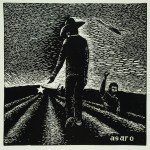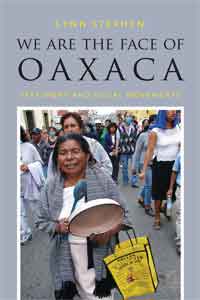Posts under tag: Oaxaca
The Role of Public Art in the Oaxaca Rebellion of 2006
Wednesday, March 5 at 2 p.m.
Jordan Schnitzer Museum of Art, Ford Lecture Hall
 César Chávez Victoria, artist and member of the ASARO (Asamblea de Artistas Revolucionarios de Oaxaca/The Assembly of Revolutionary Artists of Oaxaca) collective, will discuss the founding of the group and its role in the 2006 Oaxaca Rebellion. This year marks the 8th anniversary of the collective’s commitment to engendering social change through art.
César Chávez Victoria, artist and member of the ASARO (Asamblea de Artistas Revolucionarios de Oaxaca/The Assembly of Revolutionary Artists of Oaxaca) collective, will discuss the founding of the group and its role in the 2006 Oaxaca Rebellion. This year marks the 8th anniversary of the collective’s commitment to engendering social change through art.
The contents of this public presentation were developed under a grant from the Undergraduate International Studies and Foreign Language (UISFL) Program, International Studies Division, U.S. Department of Education. However, those contents do not necessarily represent the policy of the Department of Education, and you should not assume endorsement by the Federal Government. Additional support was provided by the College of Arts and the Jordan Schnitzer Museum of Art.
We Are the Face of Oaxaca: Testimony and Social Movements by Lynn Stephen
We Are the Face of Oaxaca: Testimony and Social Movements
by Lynn Stephen
Duke University Press
(September 2013)
A massive uprising against the Mexican state of Oaxaca began with the emergence of the Popular Assembly of the Peoples of Oaxaca (APPO) in June 2006. A coalition of more than 300 organizations, APPO disrupted the functions of Oaxaca’s government for six months. It began to develop an inclusive and participatory political vision for the state. Testimonials were broadcast on radio and television stations appropriated by APPO, shared at public demonstrations, debated in homes and in the streets, and disseminated around the world via the Internet.
The movement was met with violent repression. Participants were imprisoned, tortured, and even killed. Lynn Stephen emphasizes the crucial role of testimony in human rights work, indigenous cultural history, community and indigenous radio, and women’s articulation of their rights to speak and be heard. She also explores transborder support for APPO, particularly among Oaxacan immigrants in Los Angeles. The book is supplemented by a website featuring video testimonials, pictures, documents, and a timeline of key events.
About The Author
Lynn Stephen is Distinguished Professor of Arts and Sciences, Professor of Anthropology, and Director of the Center for Latino/a and Latin American Studies at the University of Oregon. She is the author of Transborder Lives: Indigenous Oaxacans in Mexico, California, and Oregon and Zapotec Women: Gender, Class, and Ethnicity in Globalized Oaxaca, both also published by Duke University Press.
